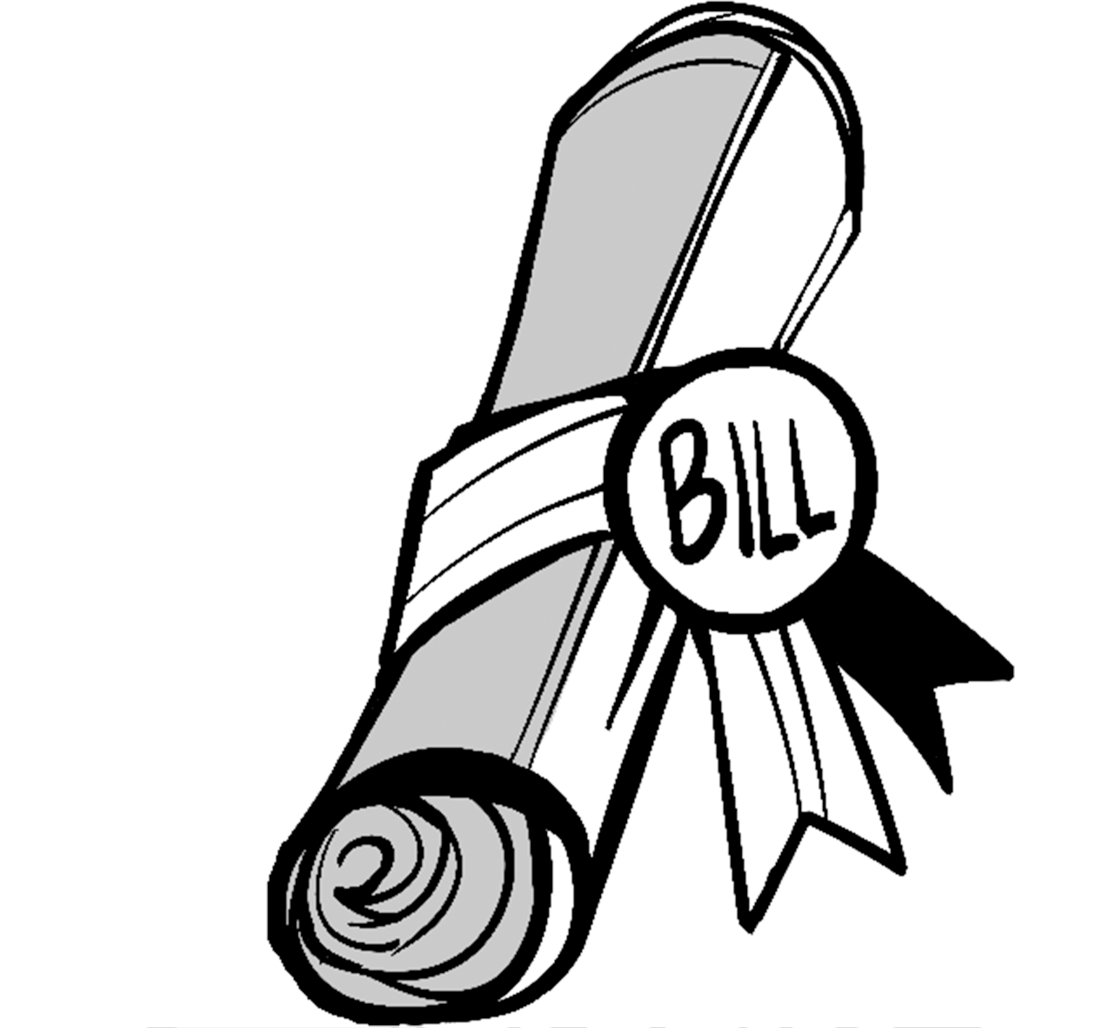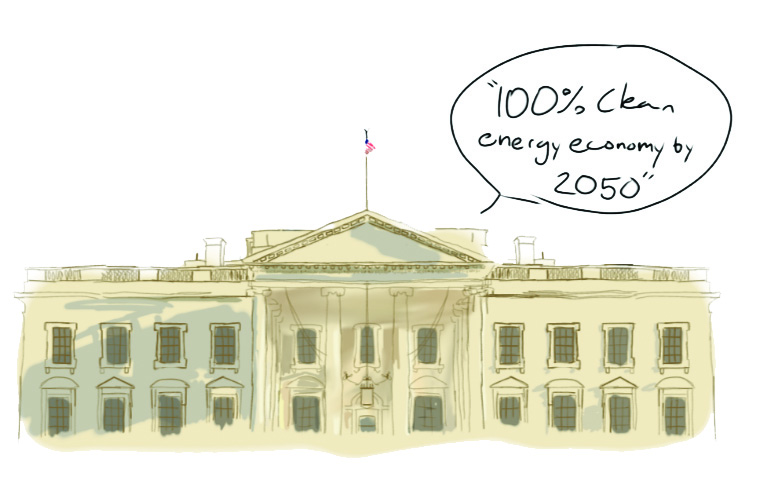
What is net neutrality?
Net neutrality is a policy enacted Mar. 12, 2015 by the Federal Communications Commission, a five-person board that regulates interstate communications, under orders from then-President Barack Obama. Officially called the Open Internet Order, the act reclassified broadband internet service providers (ISPs) as ‘common carriers’ and broadband internet as a utility similar to power, gas and telephone services. The common carrier designation subjected ISPs to additional regulation under Title II of the Communications Act of 1934, which requires them to conduct themselves in a “just and reasonable” manner in charging, practicing, classifying and regulating communications services, and making “unjust or unreasonable discrimination” in those respects unlawful.
Notable supporters of net neutrality include Vint Cerf, whom The Guardian calls “the father of the Internet”, Tim Berners-Lee, inventor of the World Wide Web, and Steve Wozniak, co-founder of Apple. Proponents claim that the policy is essential to the maintenance of Constitutional rights – in fact, the Electronic Frontier Foundation said that “an attack on net neutrality is an attack on free speech”.
What will change under the new rules?
One of the most common claims by proponents of net neutrality is that its demise paves the way for companies to begin increasing the price of existing internet speeds and the creation of paid “fast lanes” — something Burger King lampooned in a parody promotional video where customers had to pay up to $26 extra for extra mbps — or, making-burgers-per-second — in order to get their Whoppers within 15-20 minutes. In reality, Mbps stands for megabits per second, and is used to measure internet speeds.
A similar claim is that repealing net neutrality allows ISPs to charge extra for access to certain websites like Twitter, Facebook and YouTube. California Representative Ro Khanna tweeted a picture of internet packages in Portugal, a country he claimed is without net neutrality, where categories like Social, Video, and Music are priced at five euros apiece – pointing to the conclusion that simple access to these websites was five euros extra on top of a monthly internet bill. In reality, the EU – of which Portugal is a member – has net neutrality regulations, and the packages were to add additional data for certain sites and apps on top of an existing general data plan for mobile phones.
Under the new rules, the FCC would require “disclosure of ISP network practices.” More specifically, the blocking of “lawful content” and “non-harmful devices” must be disclosed, as must the throttling or “[degraded or impaired] access to lawful Internet traffic” and the blocking or controlling of “specific protocols or protocol ports” and “types of devices”. The practice of affiliated prioritization, which “directly or indirectly favors some traffic over other traffic… to benefit an affiliate” must be disclosed, as must the identity of the beneficiary, along with paid prioritization, which “indirectly or directly favors some traffic over other traffic… in exchange for consideration, monetary or otherwise.” ISPs must also, under the new rules, disclose pricing information and what speeds can be expected at what price points, along with privacy policies and ways to address complaints.
While practices such as blocking, throttling, and paid or affiliated prioritization must be disclosed under the new rules, they are not explicitly banned. Oversight of net neutrality would be transferred to the FTC, another federal commission, which would to enforce “commitments” to net neutrality entered into by “many of the largest ISPs”. However, the commitments of ISPs stop short of ensuring that net neutrality as it was implemented in 2015 is preserved. On April 27, 2017, the day after the FCC announced its intent to repeal net neutrality, Comcast removed from its page on net neutrality policies a pledge not to engage in paid prioritization, leaving promises that they would not block or slow lawful content and that they would be transparent in their practices. According to Recode, AT&T embarked in January on an ad campaign to ensure customers that it would not block or slow lawful content, but remained ambivalent on whether they opposed paid prioritization.
The changes technically prohibit states from passing their own net neutrality legislation, barring “rules or requirements that we have repealed or decided to refrain from imposing in this order or that would impose more stringent requirements for any aspect of broadband service that we address in this order.”
Both sides claim that repealing or retaining net neutrality will foster innovation. Supporters of net neutrality, like MIT’s Technology Review, say that the promise of steady, flat internet prices will ensure smaller startup companies – possibly the next Facebook or Tesla – to have the same access to the internet and its billions of users as giant corporations such as the current Facebook and Tesla.
Opponents of net neutrality claim that the increased regulation stifles innovation by diverting resources — in fact, one of the central claims in the FCC’s repeal is that a 3.6 billion dollar drop in total investment by ISPs occurred in the period directly after net neutrality was implemented. That money, they say, could have gone towards new internet infrastructure like cables and routing equipment. Through investment, they say, that money would back into the economy. These opponents claim that internet prices could not be inflated or that access to certain sites could not cost extra thanks to FTC oversight of ISP commitments to net neutrality.
The rise and fall of net neutrality
The rules, when first enacted in 2015, were met with hostility from ISPs. USTelecom and Alamo Broadband filed lawsuits against the FCC for overreach of its authority a week after the rules were approved in federal appeals courts in the District of Columbia and Texas regions. More notably, organizations representing national players Verizon, Sprint, T-Mobile, Comcast, Time Warner and Cablevision also filed suits in the DC region.
These lawsuits were settled in favor of the FCC in 2016, and a promised Supreme Court appeal did not come to fruition by the time Barack Obama left office.
Not that it mattered. Three days after inauguration, President Donald Trump elevated Republican Commissioner Ajit Pai, an Obama-era appointee (following the tradition of having three majority, two minority commissioners on the FCC board) to the position of Chairman of the FCC. A letter sent by Pai and his Obama-era Republican colleague, Michael O’Rielly, on Dec.19, 2016 said that the FCC intended to “revisit [in particular new “enhanced transparency” rules], and Title II Net Neutrality proceeding more broadly, as soon as possible.” Pai had, when the rules were first implemented, criticized them by quoting Sith Lord and Senator (later Supreme Chancellor, then Emperor) Sheev Palpatine by saying “Young fool … Only now, at the end, do you understand.” In addition, Democratic commissioners Tom Wheeler and Jessica Rosenworcel ended their terms shortly before President Trump took office. Their seats would go unfilled until August, leaving a 2-1 Republican majority.
There was little news until Apr. 26, 2017, when Pai announced plans to make net neutrality a voluntary commitment – a decision that was counterproductive, according to New York Times opinion contributor Tim Wu, thanks to “[net neutrality’s] popularity, record of success and acceptance by most of the industry.” Pai, at a speech that day at the Newseum in Washington, D.C., cited the rolling back of the plans of smaller ISPs, such as those in Arkansas, Illinois, and Missouri to upgrade their services, and pointing to a study done by Hal Singer, business professor at Georgetown university and a fellow at the George Washington Institute for Public Policy that found a 5.6 percent decline in capital expenditure by the 12 largest ISPs domestically. The New York Times, in an editorial, responded by saying Pai had cherry-picked his data, pointing to a pro-net neutrality group’s estimate that total investment by public broadband companies had increased by 5.3 percent.
In May 2017, the FCC voted 2-1 to move forward with Pai’s proposed changes, with Democrat Mignon Clyburn as the sole dissenting voice. In response, many large internet communities sprang into action, with large companies like Netflix, Twitter, Reddit and Discord pledging to take part in the Internet-Wide Day of Action to Save Net Neutrality, organized by Battle For The Net. The Day of Action consisted of popup alerts and push notifications sent out by popular websites and apps and users sharing pro-net neutrality images and changing their profile pictures in solidarity.
Despite these efforts, the FCC, on Nov. 21, 2017, officially set a date for the vote that would implement Pai’s proposed changes. The vote, set to take place on Dec. 14, would spur more outrage from the internet community, and the front pages of Reddit and many other popular sites were plastered with the red URGENT message by the next day.
The vote proceeded along 3-2 party lines, with Republican Commissioners Michael O’Rielly and Brendan Carr and Chairman Pai voting in favor of the changes, and Democratic Commissioners Jessica Rosenworcel and Mignon Clyburn voting against them.
Does the FCC vote mean the end of net neutrality once and for all?
The rollbacks were only officially entered into the Federal Register, which is the official legal publication of the United States Government on Feb. 22. Before that, the changes were not official, although Ars Technica reports that the ten-day window for filing lawsuits is “not always clear whether the deadline applies to the 10 business days after the FCC publishes an order on its website or to the 10 days after the order is published in the Federal Register”. On Jan. 16, eight business days after the changes were published on the FCC website Jan. 4, 21 states – every state with a Democratic attorney general – moved to sue the FCC to ensure those states a say in future legal proceedings against the ruling.
Five days after the Federal Register filing, on the 27th, Senate Democrats introduced a resolution to nullify the repeal order under the Congressional Review Act, which allows Congress to, with a simple majority in both houses of the federal legislature, review and repeal newly-passed federal regulation. According to Battle For The Net, in the Senate, one more vote is required to pass the resolution that would form half of a rollback repeal. The other half would then have to be passed by the House, where “over 25 Republican votes” are required.
In Washington, the vote so far looks as if it will proceed along party lines: both of Washington’s Senators, Democratic Senators Cantwell and Murray as well as all of the state’s Democratic Representatives, Representatives Delbene, Heck, Jayapal, Kilmer, Larsen and Smith intend to vote in favor of the repeal resolution, according to Battle For The Net. All of Washington’s Congressional Republicans, Representatives Beutler, Rodgers, Newhouse and Reichert are listed as “no stance”.
What do people think?
In general, the repeal appears to be an unpopular move. A poll by the University of Maryland cited by the Washington Post states that 83 percent of Americans disapproved of the resolution to end net neutrality. A different poll by Politico and Morning Consult gave different figures – while they cited 52 percent of Americans as approving of net neutrality, far lower than Maryland’s 83 percent, they found that just 17 percent of Americans disapproved of net neutrality, a figure in line with Maryland’s 16 percent.
Because of the popularity of net neutrality and the FCC’s decision to repeal it anyway, the subject has been one of much controversy, as illustrated by the numerous protests organized by Battle for the Net and other similar groups. Many protested the FCC by submitting comments on the proposed changes through official channels. However, it was discovered that “millions”, according to NPR, of anti-net neutrality comments had been made under stolen identities – attributing anti-net neutrality opinions to people, such as former President Barack Obama, that did not necessarily share them. In some cases, comments were found using the identities of the dead. The discovery prompted the Jan. 16 lawsuit against the FCC led by New York Attorney General Eric Schneiderman. FCC spokesman Brian Hart claimed in response that, according to the Washington Post, “comments submitted in support of net neutrality were probably tied to automated accounts”, citing 7.5 million pro-net neutrality comments filed by emails generated by one “fake email generator website”, and 400,000 more comments submitted by Russian emails.
What does this mean for Washington State?
The impact of the repeal remains to be seen in Washington State. Although states under the new rules cannot pass their own net neutrality regulation, the day before the repeal was officially passed, Governor Jay Inslee announced on Twitter plans to maintain net neutrality within the state, saying that “Washington state will act under our own authority, our own laws and our own jurisdiction to protect #NetNeutrality for all of Washington’s citizens,” and that in spite of FCC-imposed “roadblocks” Washington would “stand up for innovation, stand up for consumer and protect an internet”, using “every tool in our toolbox to do so.” When asked about the language preventing states from imposing their own net neutrality orders, he responded in three words: “Bring ‘em on.”
The day after the vote, Inslee promised to adopt rules within Washington “about the essential net neutrality of the internet”, saying that the demise of net neutrality would stifle future technological innovation in Washington, comprising a “threat to our economy” that he would not “take lightly”.
Plans for net neutrality in Washington came to fruition in what GeekWire called “a direct rebuke to the other Washington” Feb. 27 with the passing in the state Senate of Substitute House Bill 2282, and its subsequent signing into Washington State law just over a week thereafter. The bill, first introduced into the legislature Dec. 13, 2017, outlawed the blocking of “lawful content, applications, services, or nonharmful devices, subject to reasonable network management,” the “[impairing or degradation of] lawful internet traffic on the basis of internet content, application, or service, or use of a nonharmful device, subject to reasonable network management,” and “[engagement in] paid prioritization.” The bill was signed into Washington State law by Governor Inslee on Mar. 5.
Washington is the first state to sign into law net neutrality legislation among the 26 other states, according to Ars Technica, that currently have such legislation on the floor. Of those states, only Oregon has passed net neutrality legislation through both houses of the state legislature, while Montana Governor Steve Bullock, a Democrat, signed an executive order Jan. 22 requiring ISPs within the state to abide by net neutrality rules.
Legal challenges to SHB 2282 that GeekWire call “likely” have yet to emerge as of writing. Although the net neutrality has been voted as repealed, numerous objections from federal legislators and state governments through bureaucratic channels and from internet communities such as Reddit, Twitter and Discord continue to dog the proposed changes as they progress through the stages of actualization. It is unclear at this time how other states will react to the changes and how the federal government will respond to state-level legislation, but many states, Washington among them, are determined to fight.

















